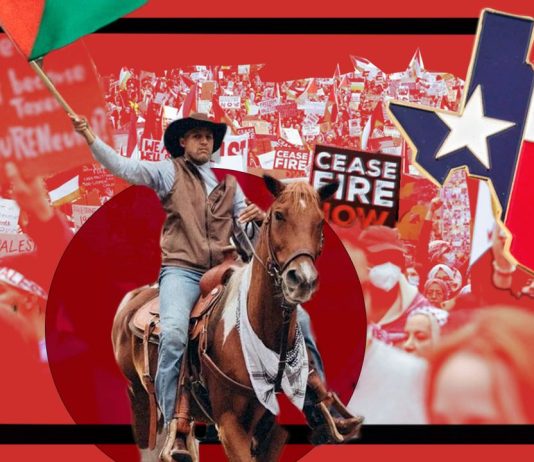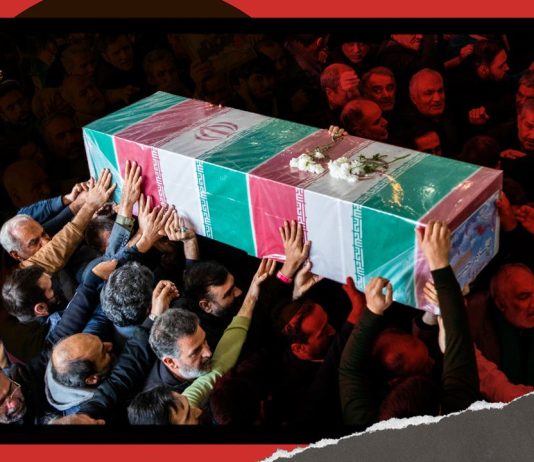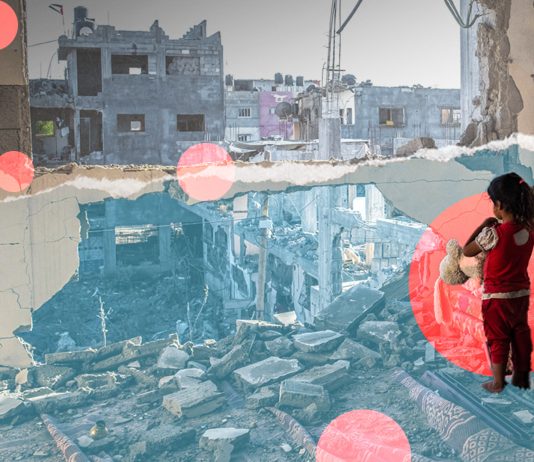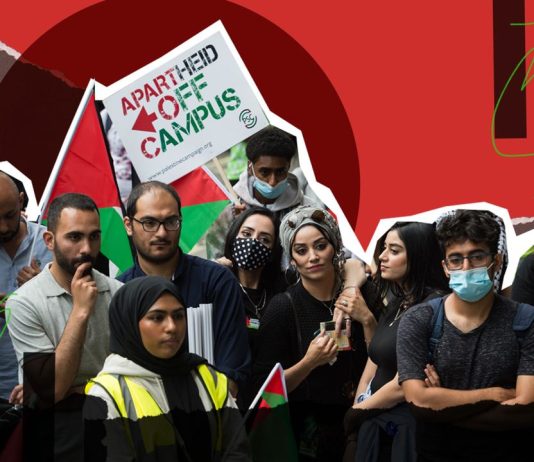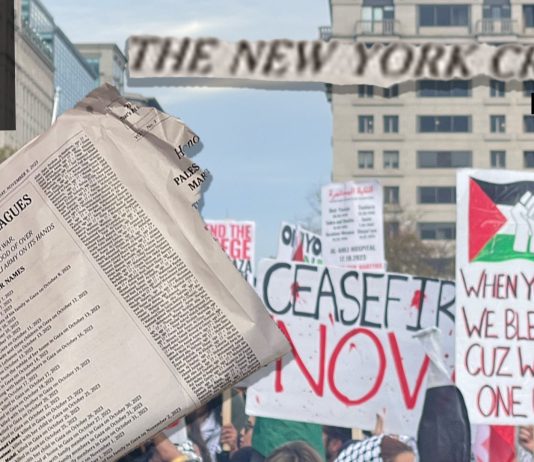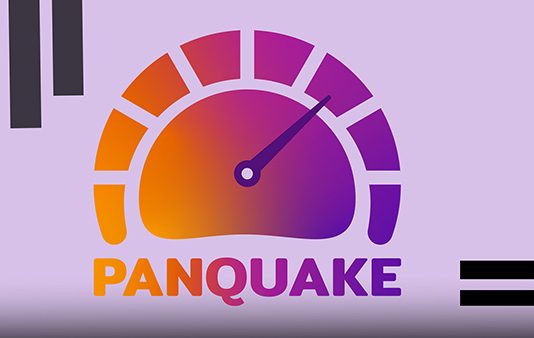Rachel Hu and Chris Garaffa
175 POSTS
0 COMMENTS
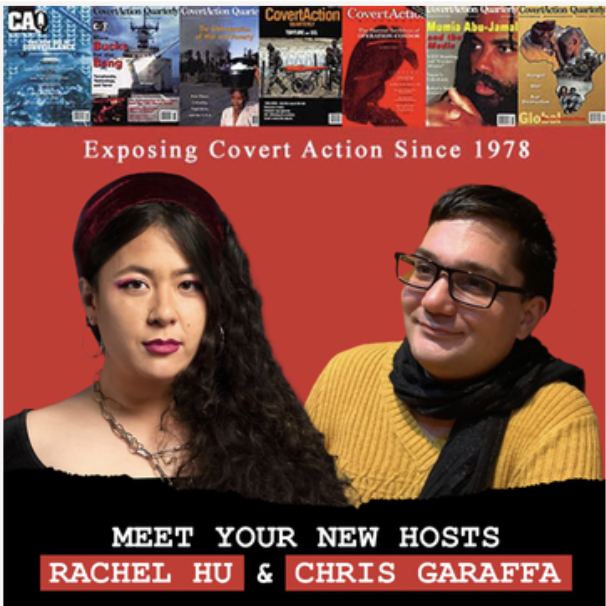 Rachel Hu is a journalist with "BreakThrough News," a new independent media project, where she hosts the podcast "It's Not You, It's Capitalism."
She is also a host on WBAI 99.5FM in NYC and has been an anti-war and anti-racist activist with the ANSWER Coalition for the last decade.
Rachel can be reached at: rachel@wbai.org.
Rachel Hu is a journalist with "BreakThrough News," a new independent media project, where she hosts the podcast "It's Not You, It's Capitalism."
She is also a host on WBAI 99.5FM in NYC and has been an anti-war and anti-racist activist with the ANSWER Coalition for the last decade.
Rachel can be reached at: rachel@wbai.org.
Chris Garaffa has been an anti-imperialist and social justice organizer since joining the movement against the Iraq war in 2003. Chris is a weekly guest on Sputnik Radio's "By Any Means Necessary," and co-hosts the podcast "The Reboot," focusing on the intersection between technology and human rights. Chris can be reached at: chris.garaffa@gmail.com.
CovertAction Bulletin – Nancy Pelosi: Funding Israel, Betraying Workers
Rachel Hu and Chris Garaffa - 1
Nancy Pelosi’s been in office for 37 years. She’s an ardent supporter of capitalism and imperialism, telling a college student who asked her in 2017 that “I have to say, we’re capitalist - and that’s just the way it is” at a time when 51% of 18-29 year olds said they didn’t support capitalism. She was part of the push on Obama to bomb Syria in 2013, she’s a hawk on Iran and she’s said that U.S. support for Israel is “ironclad.” ...
CovertAction Bulletin – On the Ground in Texas: From Eagle Pass to Pro-Palestine Protest in Austin
Rachel Hu and Chris Garaffa - 0
Thousands of people marched through the streets of Austin, TX on February 4th, calling for a ceasefire and for the state government to withdraw all state funding from Israel. According to the U.S. Campaign for Palestinian Rights, Texas’ share of the annual funding the U.S. gives Israel is $298.367,616...
Four-hundred thousand people rallied and marched in Washington, DC on Saturday the 13th, marking 100 days since the Palestinian liberation movement and the international solidarity movement gained renewed energy. On the same day, half a million people marched in London, and other events took place across the world...
CovertAction Bulletin – “They See it as One and the Same:” U.S. and ISIS Attack Iran
Rachel Hu and Chris Garaffa - 0
The Islamic State has taken credit for an attack that killed 84 people and left dozens wounded in Kerman, in southern Iran. The bombing was significant because it was on the anniversary of the assassination by the United States of Qasem Soleimani, who was the commander of the Iranian Quds force 1998 until he was killed on January 3rd, 2020 by a U.S. drone strike under the orders of Donald Trump. At the time, Soleimani was on his way to meet with the Prime Minister of Iraq and in fact he was killed in Iraq, near Baghdad International Airport...
CovertAction Bulletin – Assassinations and Bombings: Will There Be Regional War in the Middle East?
Rachel Hu and Chris Garaffa - 0
The U.S. and Israel are quickly escalating the conflict in the Middle East. On December 31st, the Navy sank three Yemeni boats in the Red Sea. Ten Yemenis were killed in this attack. The boats were part of the Yemeni Armed Forces grouping that have been preventing passage of Israeli ships, or those heading to Israeli ports, through the Red Sea. While the Yemeni Armed Forces have been largely successful in this mission, they have not caused any casualties on the ships that they are redirecting, making this provocation by the US even more egregious...
CovertAction Bulletin: U.S. Targets Venezuela on Behalf of ExxonMobil
Rachel Hu and Chris Garaffa - 1
The United States government is inserting itself into a border dispute between Venezuela and Guyana on behalf of ExxonMobil. The oil-rich Essequibo region has the world’s biggest reserves per capita of crude oil and in May of this year, a “significant discovery” by ExxonMobil was announced in the area’s 6.6-million acre Staborek Block oil field...
The U.S. House of Representatives recently passed HR 888, reaffirming the State of Israel’s right to exist by a vote of 412-1. And HR 894, which says the House “clearly and firmly states that anti-Zionism is anti-semitism” has passed by a vote of 311-14 with 92 abstentions...
On November 26, three young Palestinian men were shot in Burlington, Vermont. Hisham Awartani, a junior at Brown University, released a statement that was read at a campus vigil saying, “This hideous crime did not happen in a vacuum. As much as I appreciate the love of every single one of you here today, I am but one casualty in a much wider conflict.” ...
Malcolm X might have said it best: “The press is so powerful in its image-making role, it can make the criminal look like he’s the victim and make the victim look like he’s the criminal. This is the press, an irresponsible press. It will make the criminal look like he’s the victim and make the victim look like he’s the criminal. If you aren’t careful, the newspapers will have you hating the people who are being oppressed and loving the people who are doing the oppressing”...
CovertAction Bulletin: Building Social Media Inspired by Openness & Transparency
Rachel Hu and Chris Garaffa - 0
While most social media platforms spy on us, manipulate our emotions with hidden algorithms, feed our data to governments on request and censor with no notice or transparency, can there be an alternative that’s friendly for everyone to use? We talk with John Kiriakou and Sean O’Brien about Pancake, a new messaging technology being built to address that question...

